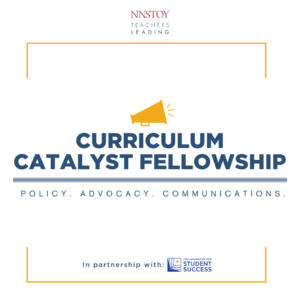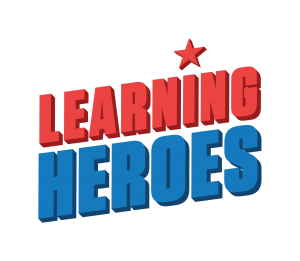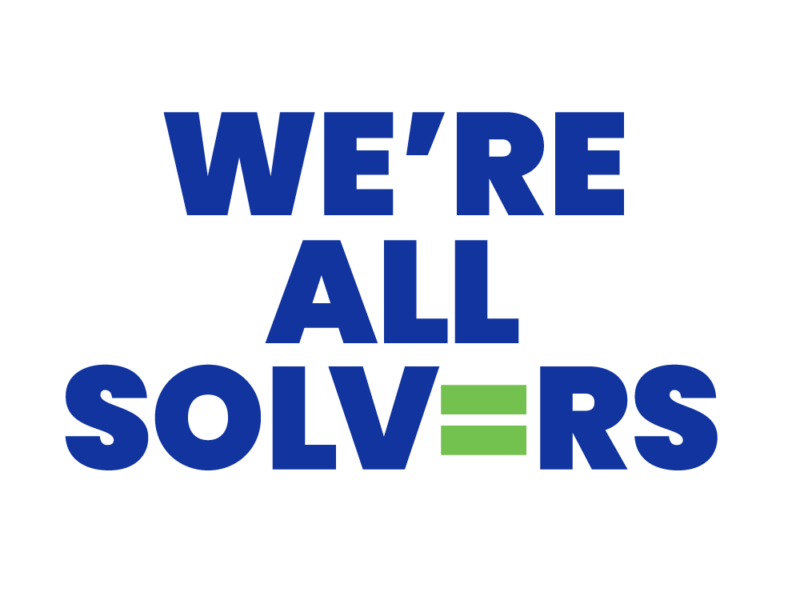
If you're a person, you're a math person.
We're born with brains that were built to solve problems. So let’s approach math education with the unshakeable belief that math is for everyone.
At SXSW EDU?
Math isn’t just important. It’s fun!
Come join us during SXSW EDU for a game night where nationally recognized teachers will reveal the math behind some of your favorite games. Enjoy interactive game stations, collect game-related giveaways, and sip on our signature Mathtini.
WHEN: March 4, 2025 from 5-7pm
WHERE: Moonshine Grill, 303 Red River St, Austin, TX 78701

Lights, Math, Action!
We’re All Solvers Video Spotlights
The ultimate math-powered competition, live podcast recordings, and spotlights of transformative math happening in schools and in the world around us all. Explore We’re All Solvers videos to learn how we can all see ourselves as “math people.”
Why This Matters

The common misconception that math is only relevant for careers in science or engineering – combined with the stereotype that it is okay to be bad – is the one-two punch that wreaks havoc on America’s approach to math education.
The latest NAEP results should alarm us all and spur urgent action – particularly as recent research shows that math scores closely tied to salary at age 30 for children of all backgrounds. Read the statement signed by 28 organizations on why it is time to move past the data and take collective action.
What's Needed
We call on states and districts to take decisive action by adopting policies that will raise student math achievement. We ask policymakers to embrace bipartisan solutions that help ensure all kids have access to a high-quality math education. We recommend six key strategies, backed by research and practice:
- Expand access to high-quality instructional materials aligned to rigorous standards.
- Provide educators with high-quality professional learning focused on effectively using instructional materials in the classroom.
- Increase instructional time by extending learning opportunities before, during, and after the school day.
- Automatically enroll students into advanced math courses based on objective assessment results or other data.
- Hold teacher preparation programs accountable for equipping teachers with the skills and content needed to succeed in math instruction.
- Leverage math coaches at the school or district level to work closely with teachers to improve classroom practice and, ultimately, student math achievement.
Commitment
We see encouraging signs that state leaders across the nation believe that every child can be good at math – with efforts underway to open access to advanced classes, increase the use of high-quality classroom materials, and strengthen supports for educators.

Alabama’s Numeracy Act (SB171), passed in 2022, created the Office of Mathematics Improvement to monitor the implementation of mathematics screener assessments, diagnostic assessments, and formative assessments for grades K-5. It also requires all K-2 students to be assessed using an early numeracy screener and grades 4-5 students must be assessed by a fractional reading screener at least two times a year. The legislation also allocates one mathematics coach for every public K-5 school with a student population of less than 800, and two coaches for a school with a student population of 800 or more.
 In 2023, the Arkansas legislature passed a sweeping education reform bill known as the LEARNS Act, which includes a provision requiring each public school district and open enrollment charter school to develop a math intervention plan in the ‘23-’24 school year for students in grades 3-8 who do not perform at or above grade level on the state assessment. The legislation further requires districts to report in the ‘24-’25 school year the types of interventions being used and the number of students using them.
In 2023, the Arkansas legislature passed a sweeping education reform bill known as the LEARNS Act, which includes a provision requiring each public school district and open enrollment charter school to develop a math intervention plan in the ‘23-’24 school year for students in grades 3-8 who do not perform at or above grade level on the state assessment. The legislation further requires districts to report in the ‘24-’25 school year the types of interventions being used and the number of students using them.

Colorado’s SB23, passed this year, requires the Department of Education, by January 2024, to offer free optional training in evidence-informed practices in mathematics, including training specifically designed for elementary school educators and secondary school mathematics educators. The bill also creates a grant program for interventions to help students who are below grade level or struggling in mathematics, children with disabilities, and students who are English learners.
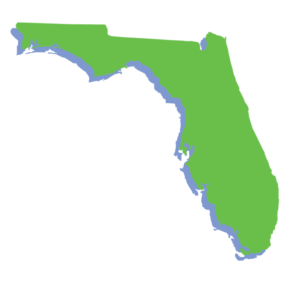
In May 2023, the Florida legislature passed a larger bill focused on literacy which includes a requirement for students in grades K-4 who show a “substantial deficiency in mathematics or dyscalculia” to receive support via intervention programs set out by the Department of Education and for parents to be notified of this support. It also requires districts to monitor these students’ performance and keep the parents updated and informed of performance progress.
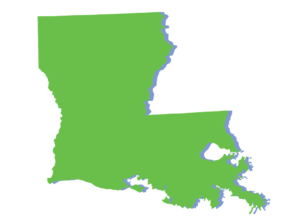
In June 2023, the Louisiana legislature passed a bill that requires math teachers who teach grades 4-8 to take additional professional development related to numeracy; and requires districts to produce annual reports on the number of teachers who have successfully done so.

Since the passage of HB 986 in 2018, North Carolina has had automatic enrollment in advanced math courses for all qualified students, elementary through high school. Legislation requires that all students who score a level five (the highest level) on their end-of-grade tests in math be automatically placed in an advanced math class the following year.
Since implementation and after a 2019 update requiring more annual reporting by region and subgroups, enrollment for advanced math courses has increased in all grade levels where the courses are offered, and evidence has shown meaningful increases in low-income and minority students taking advanced math courses. In the critical years of 8th through 11th grade, more than 95% of eligible students are now being enrolled in advanced math courses. Additionally, more middle schools are now offering high school level math courses. Not only are the percentage of eligible students increasing, but the pool of eligible students is increasing. In the last two years, the number of eligible students increased from 29k to 58k.

Texas passed legislation in 2023 (SB 2124) aimed at increasing the number of students in advanced mathematics courses in middle school and high school. The bill requires each school district and charter school to develop an advanced math program for middle school students such that the top 40% performers on the 5th grade math assessment exam be automatically enrolled in advanced math courses for 6th grade. This puts these advanced students on track to take Algebra 1 in their 8th-grade year, opening the door for them to take advanced classes such as calculus in high school. The parent may opt out of this automatic enrollment for their child.
 In April 2022, Virginia passed legislation (HB938) requiring the state Board of Education to convene a group of stakeholders to provide feedback to the General Assembly on a number of key education goals, specifically including promoting excellence in math instruction. The report, released in the summer of 2023, called for enacting mathematics instruction reform that will prioritize the “science of math” approach to teaching mathematics in grades K-8, supporting the expansion of teacher professional learning opportunities to ensure high quality mathematics instruction is provided to all students. It also included recommendations to revise the state’s math standards, which now require the board to define “mastery” or proficiency for every grade level, that students have personalized mathematics pathways based on mastery and readiness, and that teachers determine the instructional sequence of the content that is best suited to meet the needs and goals of the student.
In April 2022, Virginia passed legislation (HB938) requiring the state Board of Education to convene a group of stakeholders to provide feedback to the General Assembly on a number of key education goals, specifically including promoting excellence in math instruction. The report, released in the summer of 2023, called for enacting mathematics instruction reform that will prioritize the “science of math” approach to teaching mathematics in grades K-8, supporting the expansion of teacher professional learning opportunities to ensure high quality mathematics instruction is provided to all students. It also included recommendations to revise the state’s math standards, which now require the board to define “mastery” or proficiency for every grade level, that students have personalized mathematics pathways based on mastery and readiness, and that teachers determine the instructional sequence of the content that is best suited to meet the needs and goals of the student.

In March 2023, the West Virginia legislature passed HB 3035, known as the Third Grade Success Act, aimed at developing a multi-tiered system of support for early literacy and numeracy in kindergarten through grade 3. Among the math provisions, the bill requires the development of an “appropriate list of literacy and numeracy screening tools, the creation of individualized reading or mathematics improvement plans for students identified as having a deficiency in grades K-4, and participation in comprehensive training on the science of reading and numeracy instruction.
Curriculum and Instruction
Stay up-to-date on the leading state efforts to advance high-quality instructional materials, use statewide annual assessments to track student achievement, and to accelerate learning past the pandemic – all on CurriculumHQ, AssessmentHQ, and EduProgress.

Explore the leading state efforts to advance high-quality instructional materials, as well as expert commentary on educator resources, trends, and research from Jocelyn Pickford.

Explore the leading state efforts to accelerate learning beyond the pandemic, with expert commentary from Chad Aldeman.

Explore data from all available state annual assessments, with commentary from testing expert Dale Chu.
Champions
Real change takes a Champion – and we’re committed to identifying and supporting expert math Champions pushing for greater opportunities for K-12 students.
The Curriculum Catalyst Fellowship is a one-year program currently engaging eight state teachers of the year or finalists who are dedicated to advancing policies and practices that support expanded availability and use of high-quality instructional materials in math and science.
Vanessa Vakharia is known as the “Math Guru” and is dedicated to helping students and families tackle math anxiety. With an international following, Vakharia is passionate about bringing math to life for students by making it engaging, connecting math to their real world experiences, and spreading the belief that we are all math people.
Resources for Leaders & Educators
Contact Us
Sign up for updates from We're All Solvers--or drop us a line!



